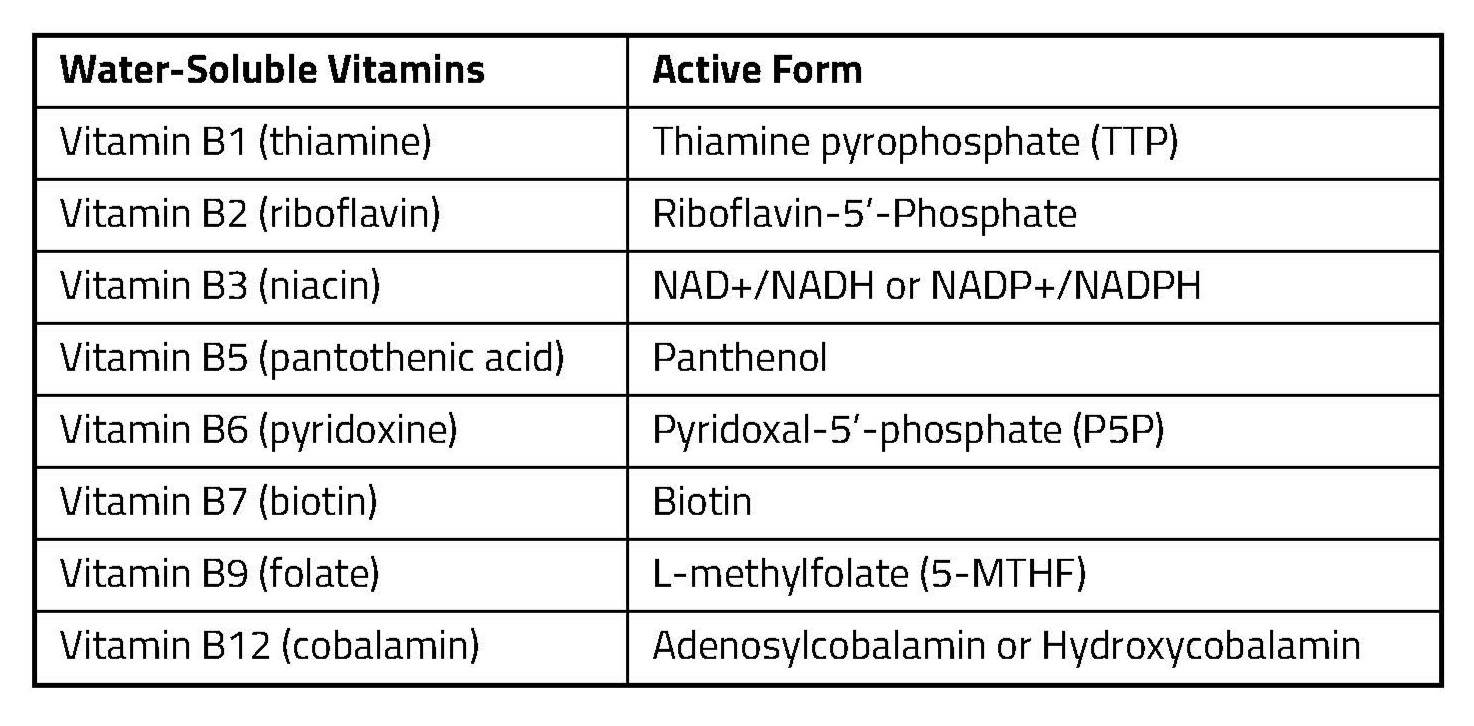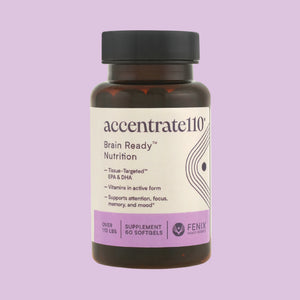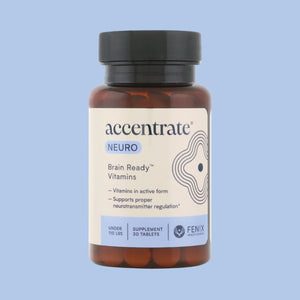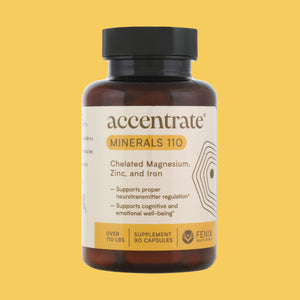Bioavailability and B Vitamins: Does It Matter?

What is Bioavailability?
Simply put, bioavailability is an ingredient’s ability to be absorbed by the body and used as a nutrient. Using a bioavailable ingredient allows the nutrient to be more effective since it can be readily absorbed and utilized by the target area in the body. When discussing bioavailability, you'll also often hear about a nutrient's active form. When we eat or supplement with nutrients in their inactive forms, our bodies must activate it prior to use.
Think of it like when you buy furniture, you have several delivery options:
- • Pick Up Unassembled (Inactive Form of the Nutrient - further steps are necessary before use)
- • Deliver Assembled (Bioavailable in Active Form of the Nutrient - ready to use and delivered to the right spot)
When it comes to providing nutrition, Fenix wants to make sure the nutrient is delivered ready to use by the target area of the body. Having our ingredients in their most bioavailable, active forms is our mission, which is why we call Accentrate® “Brain-Ready Nutrition.” All our ingredients are ready to be assimilated and used by the area we are targeting, the brain!
B Vitamins and Bioavailability
You can see the importance of the active form easily with the B vitamins as they must be activated by your liver and/or kidneys before they can be used. Taking the bioavailable forms of B vitamins allows your body to skip this process and get straight to work!

Vitamin B6 (Pyridoxal-5’-phosphate or P5P)
The liver must convert vitamin B6 into P5P, which is its active form, to be utilized as a cofactor for more than 150 enzymes.1,2,3 Among those 150, P5P is crucial for enzymes that synthesize neurotransmitters dopamine and serotonin, which is why we included P5P in our Accentrate® formulations to support mood and focus.
Vitamin B9 - Folate (L-Methylfolate)
Folate is important for normal cognitive function and is needed for proper dopamine regulation and neurotransmitter stimulation. Often, supplements will use folic acid, but l-methylfolate (5-MTHF) is the active form that crosses the blood-brain barrier, which is why we chose this form for Accentrate®. L-methylfolate is necessary for proper regulation of neurotransmitters, which supports mood, attention, and memory.
Another main reason this form is used is for those individuals who have a genetic polymorphism or mutation (MTHFR) that stops the body from converting folic acid to l-methylfolate. This gene gives instructions for making methylenetetrahydrofolate reductase, an enzyme required for the multi-step process of synthesizing methionine, an essential amino acid important for neurotransmitter synthesis.4 By providing l-methylfolate directly to those with this mutation, it circumnavigates the need for converting folic acid as it’s already in the needed, active form.
Vitamin B12 – Cobalamin (Adenosylcobalamin and Hydroxycobalamin)
Like B6 and B9, vitamin B12 has an active, bioavailable form, but there are several forms, adenosylcobalamin and hydroxycobalamin, and they are essential for the metabolism of folate and important for healthy dopamine production. We chose to use these two forms of B12 together with l-methylfolate in Accentrate® products to support mood and neurotransmitter synthesis.
While some people may receive enough of these vitamins in their diet or by supplementation with the inactive forms, it’s worth evaluating the bioavailability of the supplements you take to ensure your body is able to absorb and utilize what you give it. It’s especially important if you know you have a large deficiency, genetic mutation, or malabsorption present, since the bioavailable forms can help overcome these challenges.
Since Fenix Health Science began, it's our mission to formulate each supplement to contain the most appropriate, bioavailable form to support your mental health and overall well-being. If you have any questions about bioavailability, our products, or ingredients, please contact us.
Learn more about which bioavailable nutrients support mental health and discover if they might be right for you below.
References:
[1] Said, H. M. (2011). Intestinal absorption of water-soluble vitamins in health and disease. Biochemical Journal, 437(3), 357–372. https://doi.org/10.1042/bj20110326
[2] Office of Dietary Supplements - Vitamin B6. (n.d.). https://ods.od.nih.gov/factsheets/VitaminB6-HealthProfessional/
[3] Paiardini, A., Giardina, G., Rossignoli, G., Voltattorni, C. B., & Bertoldi, M. (2017). New Insights Emerging from Recent Investigations on Human Group II Pyridoxal 5’-Phosphate Decarboxylases. Current Medicinal Chemistry, 24(3), 226–244.
[4] Gökçen, C., Koçak, N., & Pekgör, A. (2011). Methylenetetrahydrofolate Reductase Gene Polymorphisms in Children with Attention Deficit Hyperactivity Disorder. International Journal of Medical Sciences, 8(7), 523–528. https://doi.org/10.7150/ijms.8.523
These statements have not been evaluated by the Food and Drug Administration. This product is not intended to diagnose, treat, cure, or prevent any disease.
- Tags: vitamins




